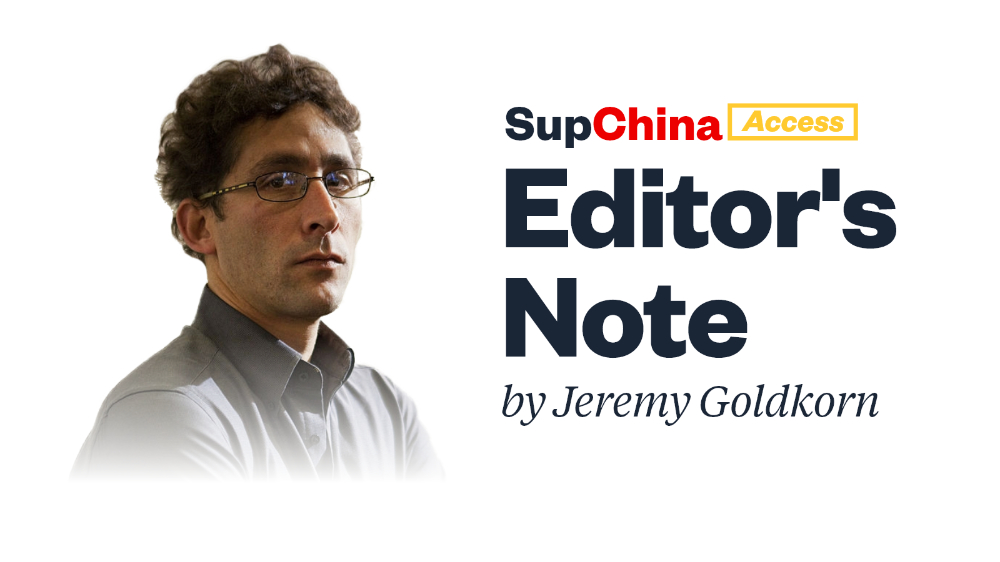Editor’s note for Friday, December 10, 2021
A note for Access newsletter readers from Jeremy Goldkorn. Today: Xi Jinping wants to "prevent the barbaric growth of capital," according to a readout from the annual Central Economic Work Conference; Evergrande finally defaults on a bond; the struggles of single mothers; Nicaragua's switch from Taipei to Beijing; Alibaba is left out of Unigroup deal; central bank raises foreign currency reserve requirements for banks; Hong Kong warns the U.K.'s Sunday Times about inciting election boycotts.

Dear reader,
Other breaking stories from China today:
Xí Jìnpíng 习近平 chaired the annual Central Economic Work Conference, which “was held in Beijing from Wednesday to Friday as Chinese leaders mapped out priorities for the economic work in 2022,” according to Xinhua (in English, or more comprehensively in Chinese).
One sentence in the Chinese readout stood out to savvy commentators Henry Gao and Bill Bishop: “It is necessary to set up ‘traffic lights’ for capital, strengthen the effective supervision of capital in accordance with the law, and prevent the barbaric growth of capital” (要为资本设置“红绿灯”,依法加强对资本的有效监管,防止资本野蛮生长).
Bishop notes that Xi’s catchphrase about reining in companies — “preventing disorderly expansion of capital” — does not appear, but “prevent the barbaric growth of capital…sounds harsher.” As for “traffic lights for capital…whatever that means, but if I am a capitalist in China I am not thinking it is positive.”
Evergrande, China’s most famous indebted real estate company, has finally defaulted on a bond. But as Caixin notes, since this is really just “the other shoe dropping” as everyone expected, the default itself “will not have a major impact on the market.” A week ago today, Evergrande made its first public admission that its $300 billion debt liability has become unsustainable.
Single mothers are the focus of a new piece by Stephanie Studer in The Economist: “Divorced mothers in China receive the same state benefits as married ones. But women who conceive a child out of wedlock are denied them.” There’s also a segment on the topic in the Economist’s (free) podcast, The Intelligence.
Nicaragua switched diplomatic recognition from Taipei to Beijing, “leaving 13 nations and the Vatican still recognizing Taiwan as a sovereign nation,” reports the New York Times.
China’s chip conglomerate Unigroup has got new state-backed investors, but Alibaba was left out of deal, according to Reuters: “The deal, which is pending court approval, winds down a long-gestating restructuring process for the beleaguered Tsinghua Unigroup, which was once poised to be China’s chip champion but later found itself saddled with debt.”
China’s central bank “said it will raise the amount of foreign currencies banks have to hold in reserve for a second time this year in a move markets interpreted as an effort to rein in the surging yuan,” says Caixin.
“Hong Kong’s trade office in London has warned the U.K.’s Sunday Times that its article may be illegal under Hong Kong law which forbids the incitement of an election boycott,” according to Hong Kong Free Press. “The letter says the law is applicable internationally.”
Reuse, Renew, Recycle: Recent Architecture from China is a new exhibition at MoMA in New York that highlights young Chinese architects’ “commitment to social and environmental sustainability.”
—Jeremy Goldkorn, Editor-in-Chief






